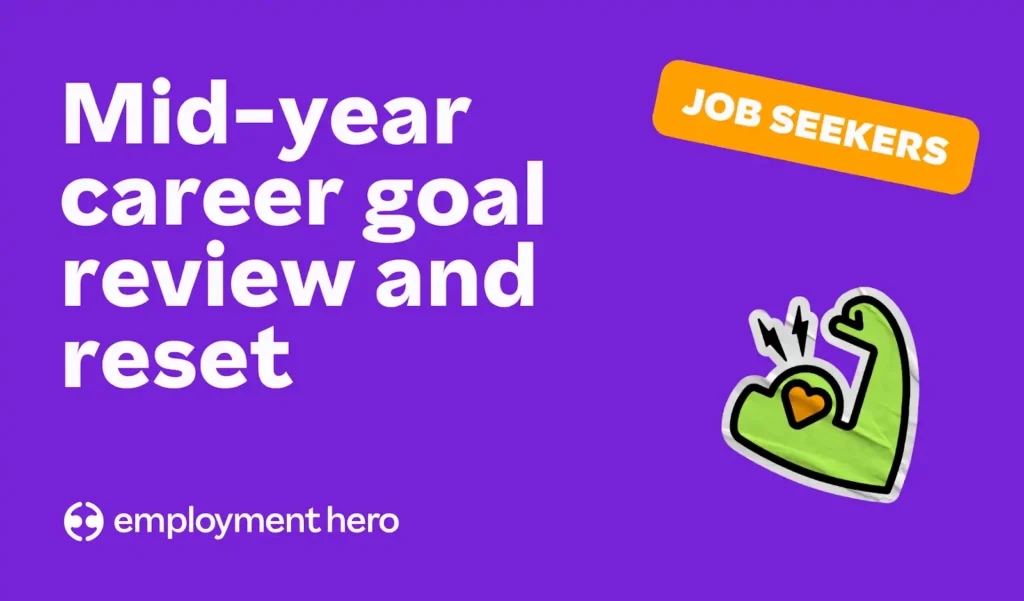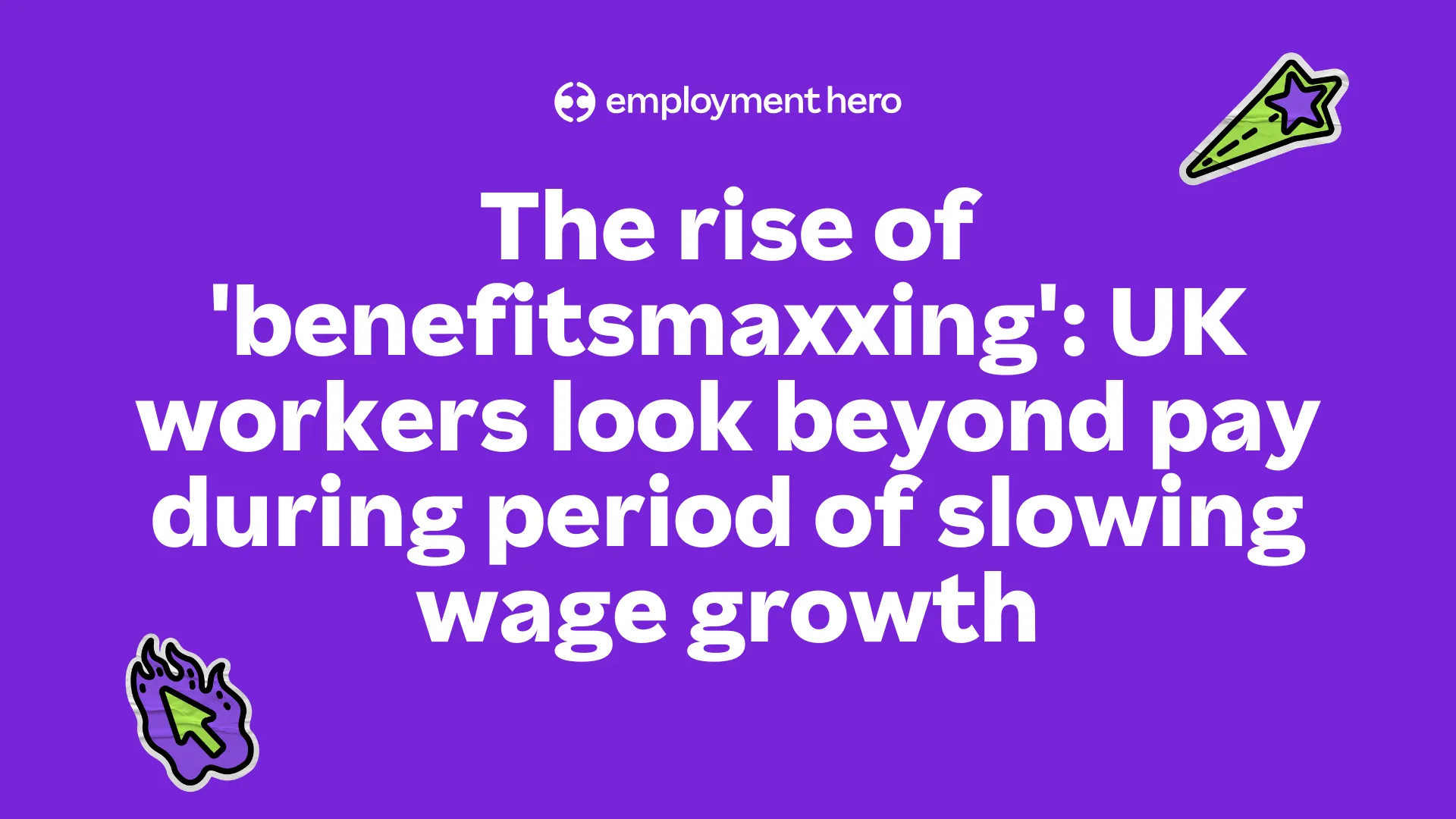Mid-year career review: Reset your goals for success

Contents
Halfway through the year is the perfect time to stop, reflect and refocus. Whether you’re powering through your career milestones or feeling like you’ve lost momentum, a mid-year career review allows you to hit reset and approach your ambitions with renewed clarity. Think of this as an opportunity to celebrate your progress, reassess priorities, and create a roadmap for achieving your goals in the months to come. Here’s how to make your mid-year career review impactful and actionable.
Why a mid-year career review is important
Life moves fast. It’s easy for shifts in circumstances, priorities, or workplace dynamics to take you off course. That’s why pressing pause for a mid-year review is vital. Here’s why it matters:
- Realignment with your career vision: Your ambitions might look different now than they did in January. A review ensures your goals align with your current aspirations and values.
- Accountability: Reflecting on your progress keeps you accountable. It highlights what’s working, what’s not, and what changes are needed.
- Renewed energy: Revisiting your goals with a fresh perspective can reignite motivation and drive as you tackle the second half of the year.
Reflecting on the first half of the year
Before resetting your career goals, start by reflecting on what you’ve achieved so far. This introspection will help you identify wins, assess setbacks and determine the best course of action.
Key questions to ask yourself
- Have I made consistent progress toward my goals?
- Are my goals still relevant to my career trajectory and personal interests?
- What have been my biggest wins this year and how did I achieve them?
- Which challenges or obstacles have kept me from moving forward?
- Have I developed any new skills or cultivated stronger workplace relationships?
This exercise isn’t just a review of results; it’s also a chance to celebrate your achievements, no matter how big or small. Recognising your progress builds confidence and gives you a solid foundation to build on.
Request external feedback
Your self-assessment should also include input from others. Managers, mentors and colleagues can offer valuable insights into your performance and highlight areas of opportunity you may have overlooked. Schedule a feedback session, either formal or casual, and come prepared with questions to make the most of the conversation.
Resetting your career goals for the rest of the year
Once you’ve taken stock of the first half of the year, it’s time to reset your goals. Approach this step strategically for maximum impact.
Setting short-term and long-term goals
You don’t have to achieve everything in one day or even one month. Set yourself a blend of short-term and long-term goals so you can focus on some quick wins and building toward a bigger achievement.
Example short-term goals:
- Take a presentation or public speaking workshop to improve professional communication.
- Complete one internal training module related to your role by the end of the quarter.
- Revise your LinkedIn profile to better reflect your current achievements and aspirations.
- Volunteer to lead an office project or task to demonstrate leadership initiative.
Example long-term goals:
- Enrol in a postgraduate certification or professional accreditation (e.g., CPA for accountants or Cert IV Training and Assessment for trainers).
- Transition into a new role within your company by the end of the fiscal year.
- Improve your career mobility by starting a hands-on side project in your field of interest.
- Build a professional network of 50+ local and international contacts within your industry.
These examples cater to a range of industries and levels, ensuring there’s something here for everyone.
Use the SMART framework
The SMART framework ensures your goals are clear, actionable, and achievable. Here’s what it looks like in practice:
- Specific: State exactly what you want to accomplish. Example: “Enhance my leadership skills by mentoring two junior team members.”
- Measurable: Define how progress will be tracked. Example: “Achieve a 5% increase in my KPI metrics by September.”
- Achievable: Set goals that challenge you but remain realistic.
- Relevant: Align goals with your career aspirations and organisational objectives.
- Time-bound: Give yourself a deadline. Example: “Complete the Advanced Data Analytics course by 31 December.”
Breaking larger goals into smaller, time-bound tasks will help you build momentum and stay focused.
Overcoming obstacles along the way
Every career path has its roadblocks. Instead of letting them derail you, view challenges as opportunities to learn and grow. Here’s how you can troubleshoot common obstacles:
Obstacle: Lack of motivation.
- Solution: Revisit why you started. Set mini-benchmarks and celebrate small wins along the way.
Obstacle: Limited resources.
- Solution: Leverage free or low-cost tools, such as Employment Hero’s resources, for upskilling and career planning.
Obstacle: Time constraints.
- Solution: Structure your week to dedicate time exclusively for career development activities.
Persistence and flexibility are key. When one solution doesn’t work, pivot and try something new.
Career goal examples by industry
For those in the technology industry, career goals often involve staying current with rapid advancements. You might aim to become proficient in a new programming language like Python or Go, or gain expertise in a specific area such as cloud computing (e.g., AWS, Azure) or artificial intelligence (AI). Another common goal is to lead a development team, signifying a move into management, or to specialise in cybersecurity, protecting valuable data and systems. You could also focus on obtaining certifications that validate your skills in certain technologies, enhancing your professional credibility.
In healthcare, career goals are often centered around patient care and professional development. A common goal for a nurse might be to specialise in a critical care unit or become a nurse practitioner, expanding their scope of practice. Doctors might aim to conduct research in a specific disease area or take on leadership roles within a hospital department. Allied health professionals, such as physiotherapists or occupational therapists, might seek advanced certifications in niche treatments or aim to open their own private practice, providing more personalised care.
For professionals in education, career goals often revolve around enhancing student learning and professional growth. A teacher might aim to implement new teaching methodologies, like project-based learning, to improve student engagement and outcomes. Another goal could be to become a department head or a school principal, moving into an administrative leadership role. Educators might also pursue advanced degrees, such as a Master’s or Doctorate, to deepen their expertise in a subject or educational theory, or to contribute to curriculum development.
Within the administrative field, career goals frequently focus on improving efficiency, organisation, and support. An administrative assistant might aim to become a highly proficient user of new office software, streamlining tasks and improving productivity. Another common goal is to take on more responsibilities, such as managing projects or coordinating events, demonstrating initiative and leadership potential. Developing strong communication and problem-solving skills to better support a team or a manager is also a valuable objective, leading to increased trust and expanded duties.
Staying motivated for the months ahead
Now that you’ve adjusted your plan, the next step is staying motivated and consistent. Here’s how to keep your momentum through the rest of the year:
- Adopt a growth mindset: See difficulties as a chance to develop new skills rather than setbacks.
- Connect with mentors or peers: Surround yourself with a support system that keeps you inspired and accountable.
- Track your progress: Schedule monthly check-ins with yourself or your manager to evaluate your direction.
Tools like Employment Hero’s app can help you set and track personal and professional goals, ensuring visibility and accountability.
Make the most of the second half of the year
Your career is a continuous evolution, and mid-year is the perfect opportunity to refine your trajectory. Take concentrated time to reflect on your progress, reset your objectives with intention, and build proactive habits. Remember, success isn’t just about big leaps — it’s also about small, consistent steps forward.Remember, small, consistent actions create big achievements. It’s not about how you started the year; it’s about how you finish it. Use our mid-year performance review template to guide your planning. Ready for a new challenge? Check out Employment Hero Jobs for new opportunities.
Related Resources
-
 Read more: The rise of ‘benefitsmaxxing’: UK workers look beyond pay during period of slowing wage growth
Read more: The rise of ‘benefitsmaxxing’: UK workers look beyond pay during period of slowing wage growthThe rise of ‘benefitsmaxxing’: UK workers look beyond pay during period of slowing wage growth
February 26 2026: New research commissioned by Employment Hero reveals 53% of UK workers say better benefits are a factor…
-
 Read more: Employment Hero Named Among Best Australian & New Zealand Companies by G2
Read more: Employment Hero Named Among Best Australian & New Zealand Companies by G2Employment Hero Named Among Best Australian & New Zealand Companies by G2
Ranked #6 on G2’s 2026 Best Software Awards, officially a Top 10 software company in ANZ
-
 Read more: Employment Hero Named Among Best Australian & New Zealand Companies By G2
Read more: Employment Hero Named Among Best Australian & New Zealand Companies By G2Employment Hero Named Among Best Australian & New Zealand Companies By G2
Employment Hero has been ranked #6 on G2’s 2026 list of the Best Australian and New Zealand Companies.























